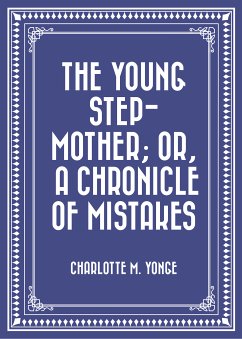
Zenobia; or, the Fall of Palmyra (eBook, ePUB)
Versandkostenfrei!
Sofort per Download lieferbar
1,82 €
inkl. MwSt.
Weitere Ausgaben:

PAYBACK Punkte
0 °P sammeln!
William Ware was an American romancer, born in Hingham, Massachusetts He graduated from Harvard University in 1816, studied for the Unitarian ministry, and preached mainly in New York, and later in Massachusetts. He achieved literary recognition chiefly from his authorship of two historical romances, Zenobia, or the Fall of Palmyra (first published as Letters from Palmyra, 1836 and 1837) and Aurelian (first published as Probus, 1838).
Dieser Download kann aus rechtlichen Gründen nur mit Rechnungsadresse in D, E, F, I ausgeliefert werden.













